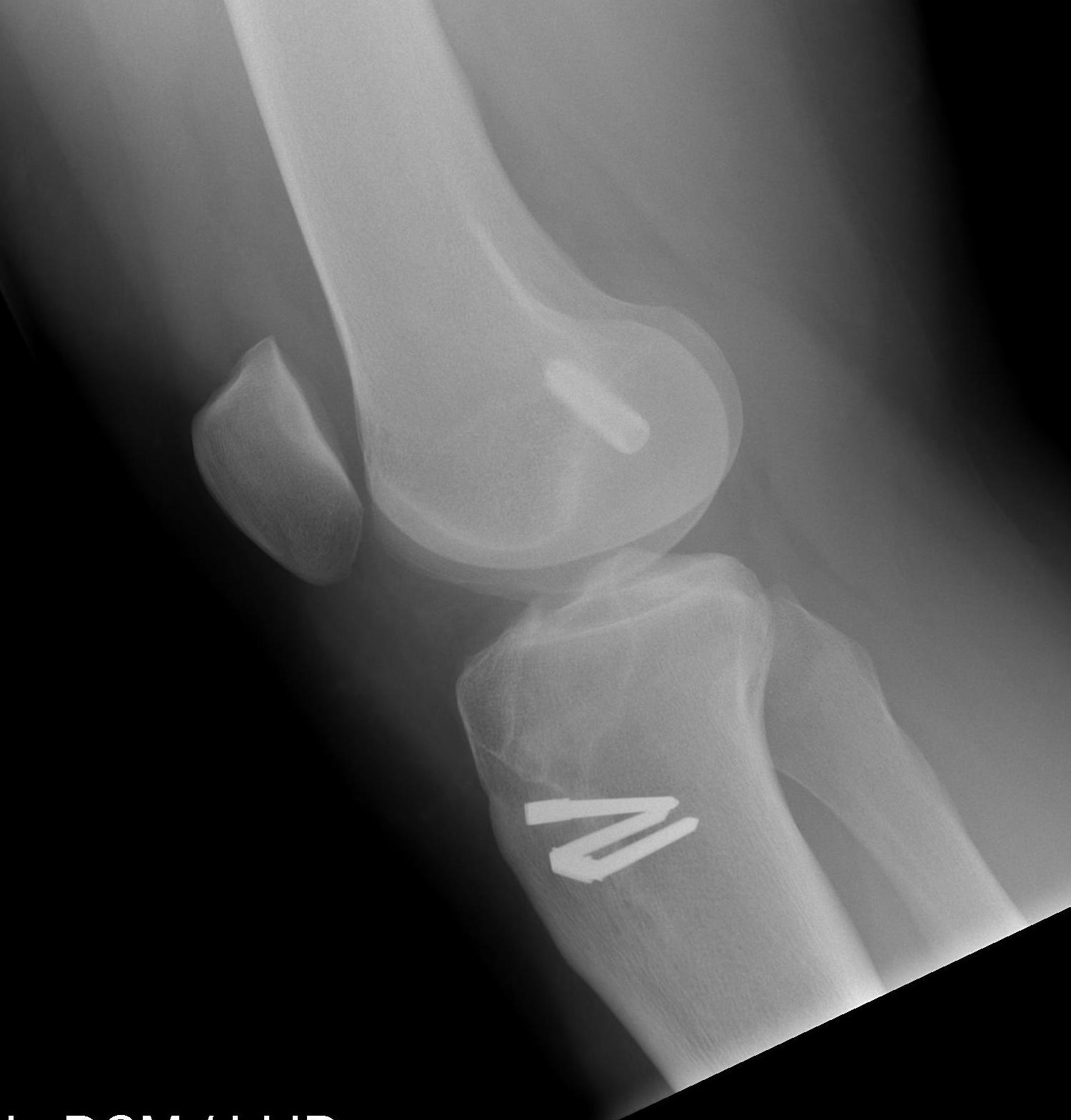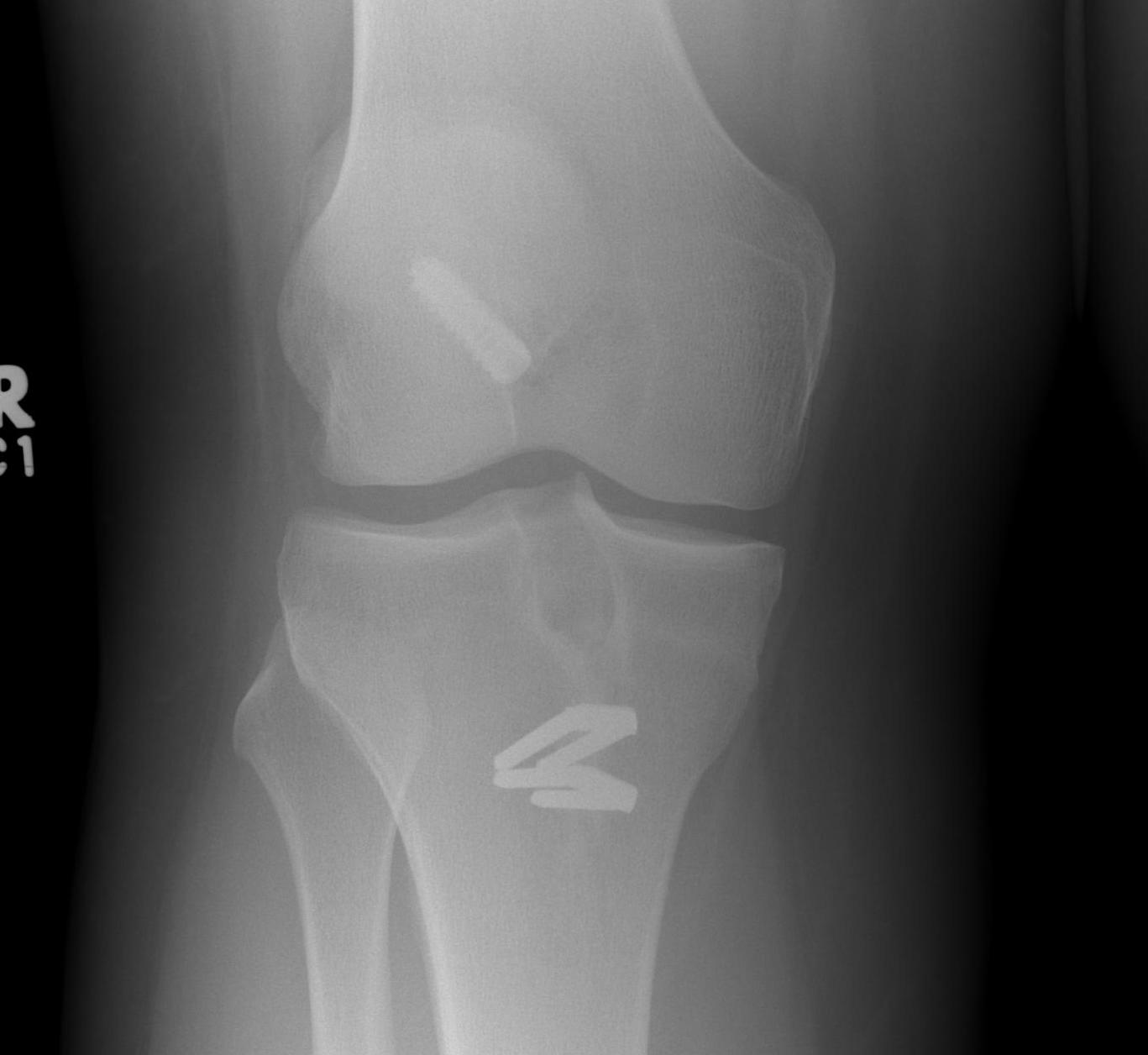Graft Preparation
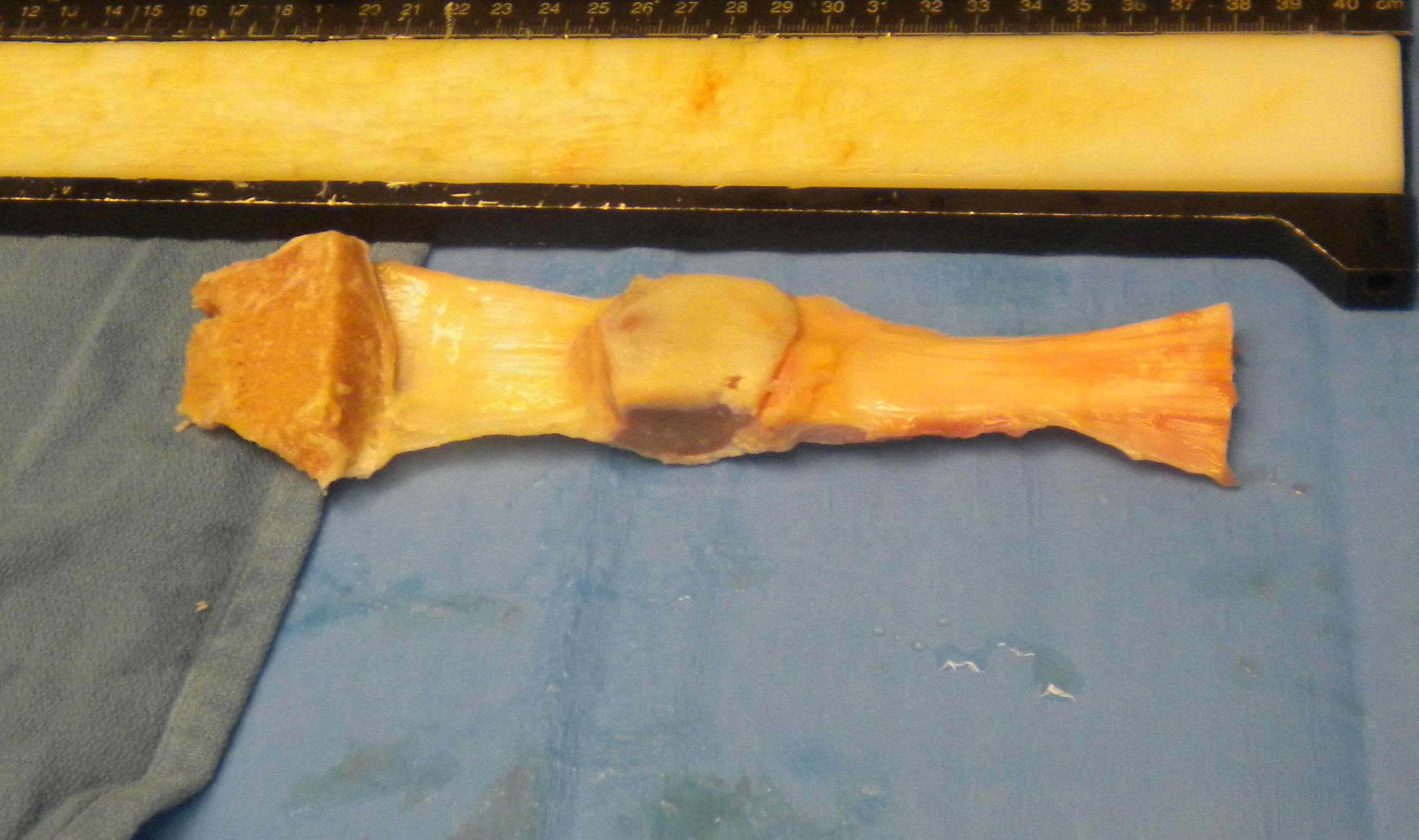
Defrost
- in 2 litres normal saline
- can add vancomycin powder
Choose which part of graft to use
- usually central third
- can take either side
- try to leave sufficient graft in case of disasters
- i.e. dropping or rupturing graft
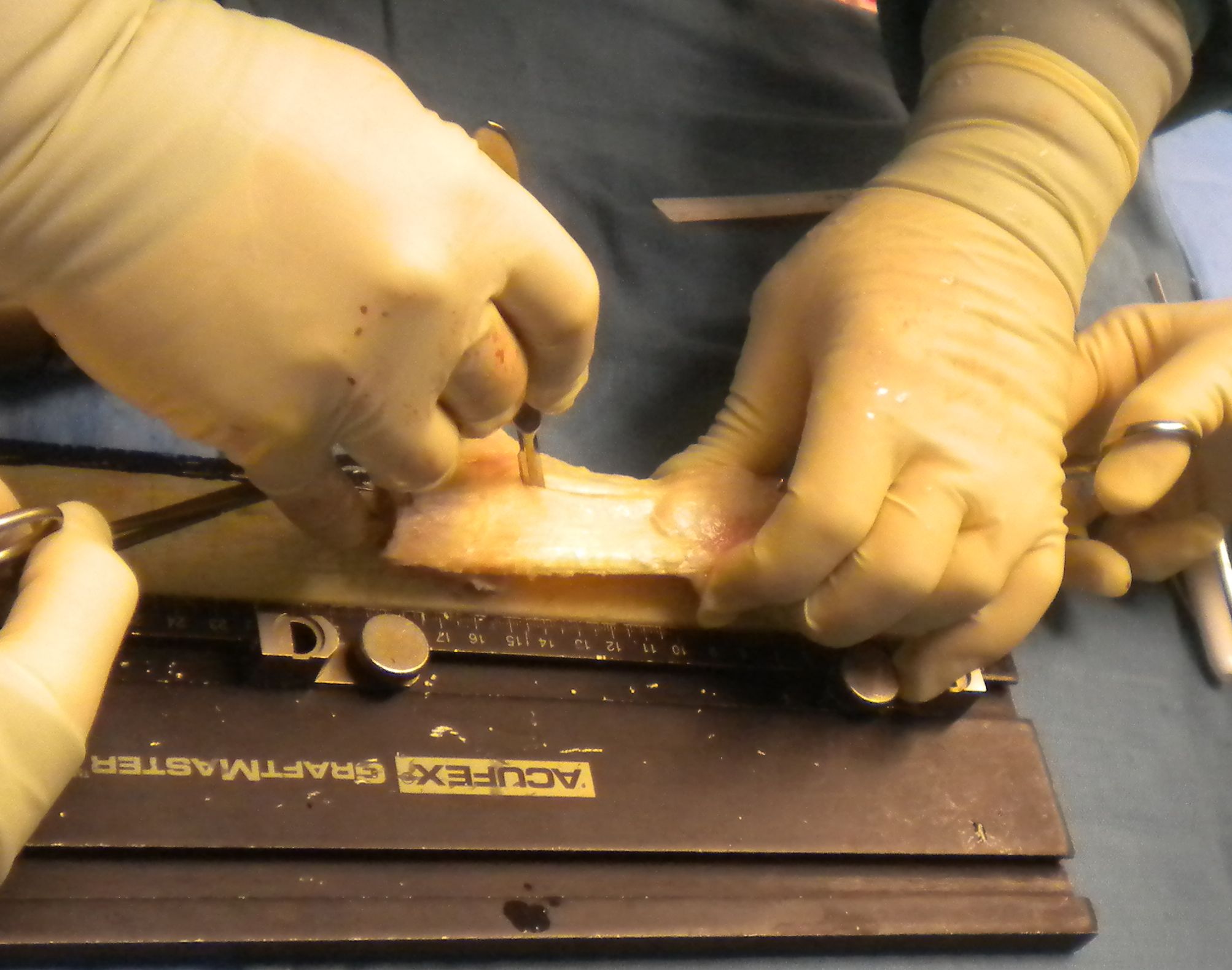
Cut tendon with knife
- 10 mm thick in women
- 12 mm thick in men or revisions
- adjust to patient's size and needs
Cut soft tissue on patella / tibial tuberosity ends
- usually narrow graft so becomes 10 mm wide
- can make 12 mm wide in revision setting
Length of bone femoral side
- usually 20 mm on femoral side
- this is usually from the patella
- cut with saw on each side
- turn and cut so is 10 mm thick
- ensure this end fits nicely through 10 mm / 12 mm tube
- this will be the passing end
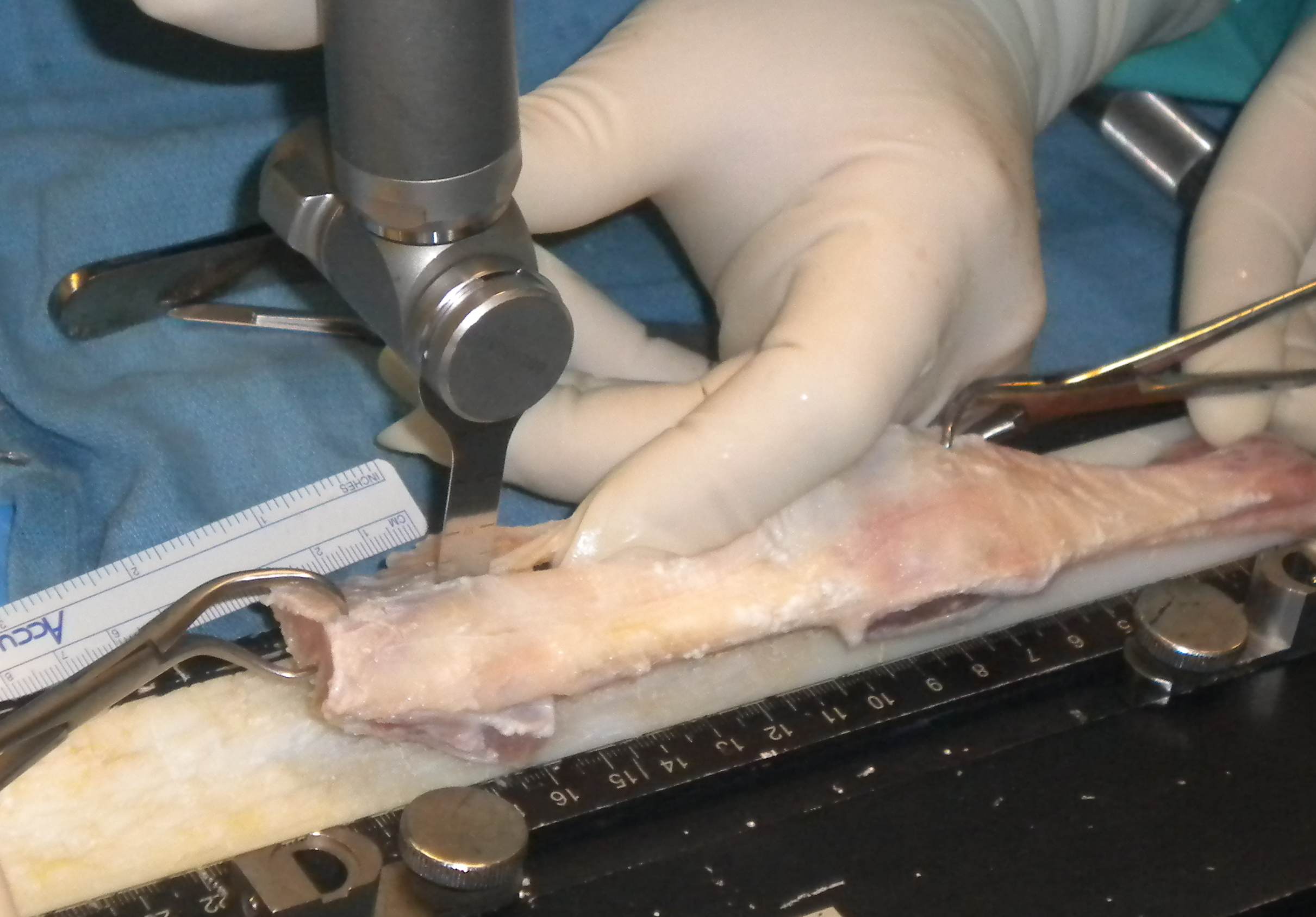
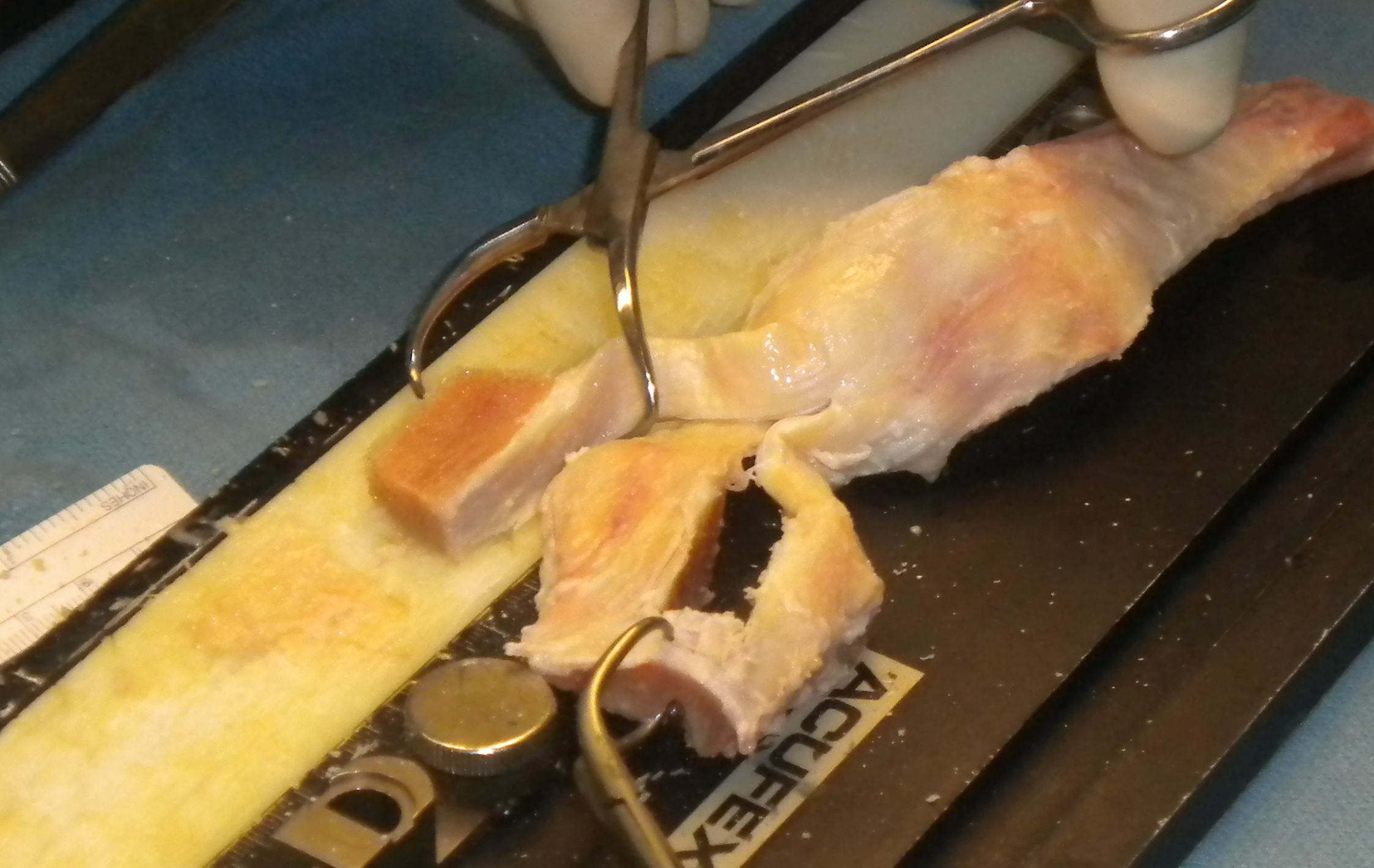
Length of bone on tibial side
- depends on fixation method
- risk is donor-recipient mismatch
- best to keep this side long / take from tibial end of graft
Graft mismatch
- if donor tendon too long for recipient knee, all bony graft will be outside tunnel
- if too short, a lot of the bony graft will be pulled into tunnel
- so keep bone graft long
- at least 30 mm
- can always shorten the tibial graft end if needed
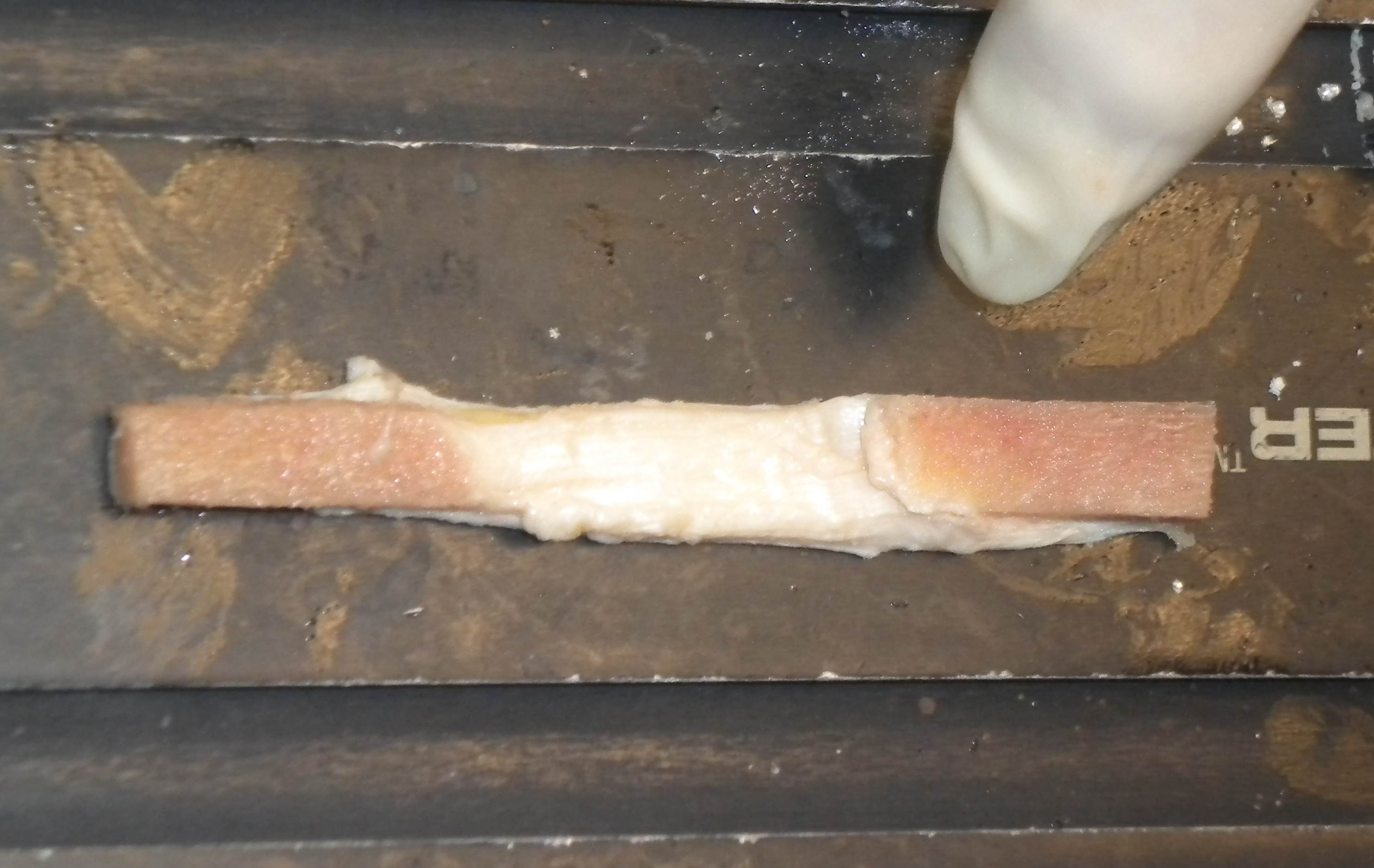
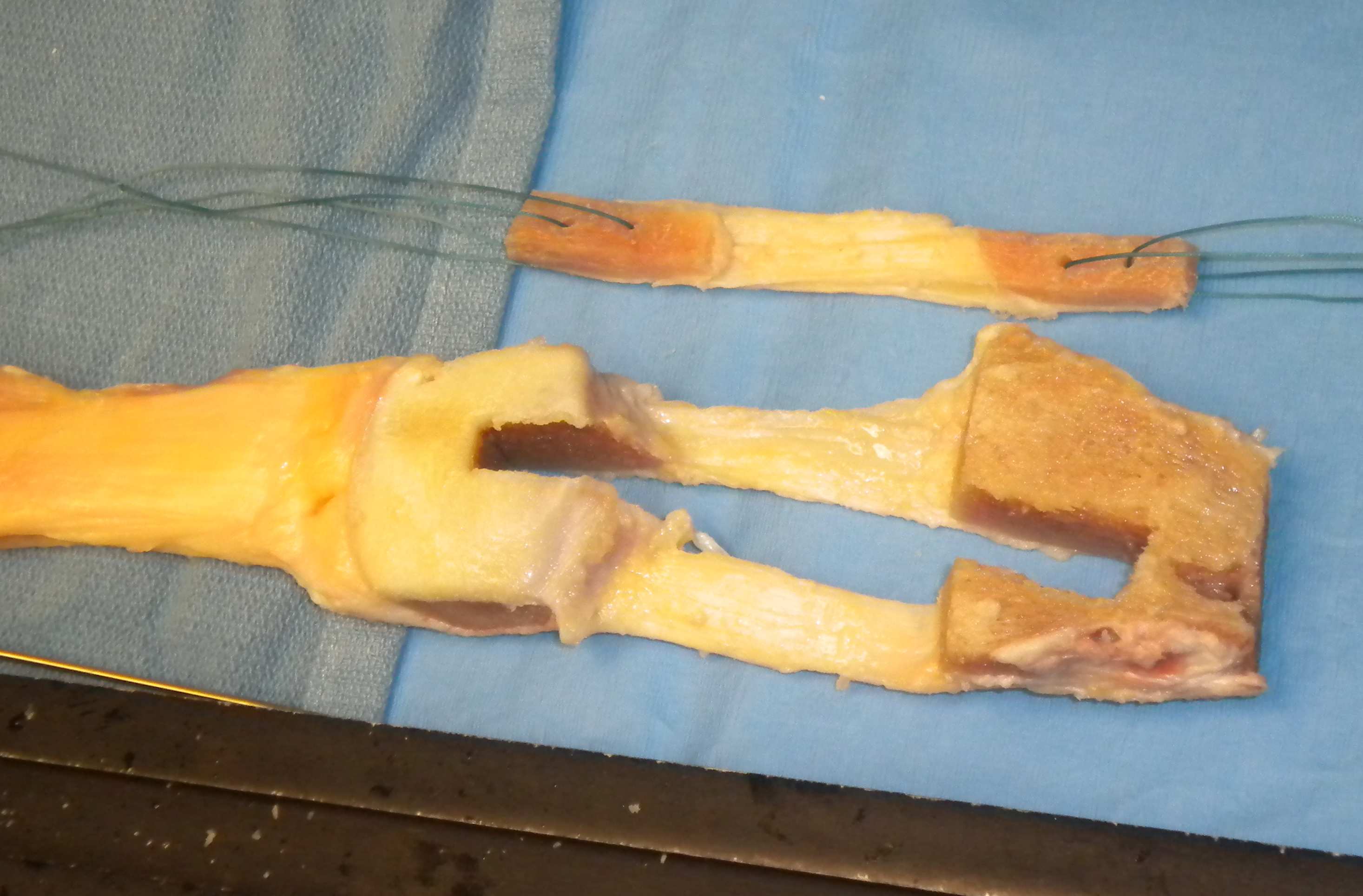
Drill holes x 2 in each bony block
- pass 1 ethibonds x 2 with suture passer
- tension
Tunnels
Standard tunnels via preferred technique
- tunnel diameter line to line
- femoral tunnel 5 mm deeper than bone bloc
Tibial fixation
- prepare a tibial groove
- using saw
- in tibia from drill hole inferiorly
- 1 cm wide, 3 cm long
- so that can secure excess tibial bone block down into this groove
Graft fixation
Pass graft
Fix femoral graft
- 7 x 25 screw for 10 mm graft
- same for 12 mm graft
Tibial graft
- either pass screw 9 x 25 mm (10 mm tunnel)
- can fix into tunnel with staples (small or medium richards)
